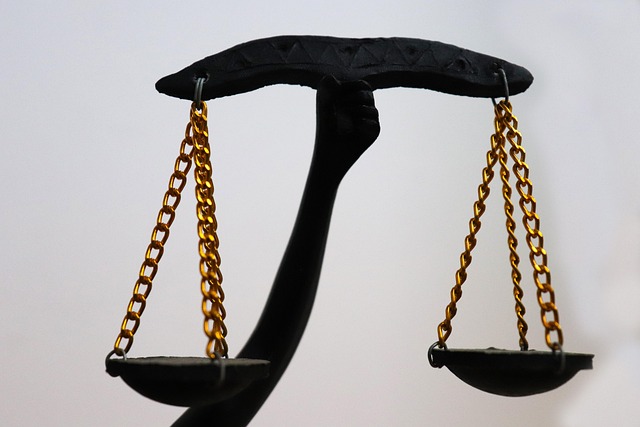Successful strategies in defamation litigation against fraudulent financial schemes involve separating fact from fiction, meticulously examining evidence, presenting compelling narratives, navigating intricate records, identifying discrepancies, and exposing transaction truths. Key tactics include using forensic accounting, advanced data analytics, challenging evidence validity, exposing narrative inconsistencies, proving absence of malicious intent, leveraging industry expertise, and understanding regional legal precedents for robust defenses and winning verdicts.
In the intricate world of finance, fraudulent practices pose a significant threat to individuals and institutions alike. This article delves into the multifaceted issue of deceptive financial schemes, offering a comprehensive guide on successful strategies in defamation litigation. From unraveling complex fraud networks to employing robust evidence gathering techniques, we explore legal frameworks and practical methods. Understanding these fraudulent tactics is crucial for both victims seeking justice and professionals aiming to fortify defenses against potential allegations.
- Understanding Fraudulent Financial Schemes
- Legal Framework for Defamation Litigation
- Evidence Gathering and Analysis Techniques
- Effective Strategies to Combat Fraud Allegations
Understanding Fraudulent Financial Schemes

Fraudulent financial schemes are intricate and ever-evolving, posing significant challenges to individuals, businesses, and even philanthropic and political communities. Understanding these schemes is crucial for mounting a successful defense in litigation. One of the primary strategies employed by those accused of financial fraud is misrepresenting or concealing material information. This can involve complex transactions, off-balance sheet entities, or elaborate accounting manipulations designed to hide illicit activities.
Successful strategies in defamation litigation often center on separating fact from fiction, meticulously examining the evidence, and presenting a compelling narrative that refutes the allegations. Legal teams must be adept at navigating intricate financial records, identifying discrepancies, and exposing the true nature of the transactions. By employing these tactics, individuals and organizations can fight back against fraudulent accusations, aim for winning challenging defense verdicts, and secure complete dismissal of all charges.
Legal Framework for Defamation Litigation

In the legal landscape of defamation litigation, understanding and employing successful strategies are paramount for achieving justice. The legal framework surrounding defamation varies across jurisdictions, but common themes include the need to prove harm, fault, and the falsity of statements made. When faced with a potential lawsuit, individuals or entities accused of defamation can use several effective tactics. One key strategy involves focusing on the specifics of the case; clearly articulating the truth behind the alleged defamatory statement can often lead to a complete dismissal of all charges.
Additionally, the right to a jury trial is a significant aspect in many legal systems, offering a powerful tool for challenging defense verdicts. By presenting compelling evidence and robust arguments, defendants can win challenging defense verdicts, demonstrating that not all accusations stand up to scrutiny. These successful strategies require meticulous preparation, a deep understanding of legal precedents, and the ability to navigate the complexities of defamation law, ultimately ensuring fair outcomes for all parties involved.
Evidence Gathering and Analysis Techniques

In successful strategies for defamation litigation involving fraudulent financial practices, evidence gathering and analysis play a pivotal role. This involves meticulous documentation of all financial transactions, records, and communications relevant to the case. Forensic accounting experts can help in uncovering concealed assets, manipulating ledgers, or false entries that serve as crucial pieces of evidence. Advanced data analytics tools enable lawyers to sift through vast amounts of financial data, identifying patterns indicative of fraudulent behavior.
The process includes cross-referencing bank statements, credit card receipts, and digital records to avoid indictment in general criminal defense cases. These strategies are especially beneficial in jury trials where the presentation of clear, compelling, and well-analyzed evidence can sway public opinion significantly. By employing these techniques, legal teams can effectively challenge and dismantle complex financial fraud schemes, ensuring justice is served without undue complexities or diversions into unrelated criminal defenses.
Effective Strategies to Combat Fraud Allegations

In navigating fraudulent financial practices allegations, a robust and proactive approach is essential. Successful Strategies in Defamation Litigation involve a multi-faceted strategy that combines meticulous document review, expert witness preparation, and strategic case selection. By thoroughly examining the facts and identifying weak points in the plaintiff’s claims, legal teams can construct compelling defenses. This includes challenging the validity of evidence, exposing inconsistencies in narratives, and demonstrating the absence of malicious intent—a crucial element in defamation cases.
Additionally, leveraging industry expertise and employing specialized financial investigators can provide a significant edge. These professionals help uncover underlying truths, providing irrefutable evidence to support defense arguments. Furthermore, understanding regional variations in legal precedents across the country is vital; tailoring strategies accordingly enhances the likelihood of winning challenging defense verdicts. This comprehensive approach ensures that each element of the case is addressed robustly, ultimately strengthening the defense’s position in jury trials.
Fraudulent financial practices pose significant challenges, but with a robust legal framework and advanced evidence analysis techniques, successful strategies in defamation litigation can be employed. Understanding common fraudulent schemes, gathering compelling evidence, and implementing proactive measures are key to combating these allegations effectively. By leveraging the right tools and staying informed about evolving legal protections, professionals can navigate this complex landscape, ensuring fairness and maintaining integrity in financial matters.






